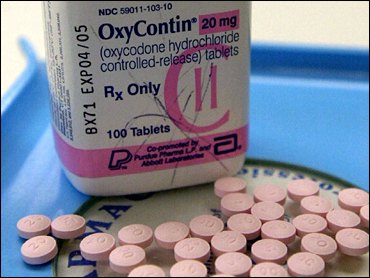NEW JERSEY
Opioid manufacturer Purdue Pharma LP plead guilty this week in federal court to conspiracies to defraud the United States and violate the anti-kickback statute, according to officials.
Purdue plead guilty to an information charging it with three felony offenses: one count of dual-object conspiracy to defraud and to violate the Food, Drug, and Cosmetic Act, and two counts of conspiracy to violate the Federal Anti-Kickback Statute.
“Purdue admitted that it marketed and sold its dangerous opioid products to healthcare providers, even though it had reason to believe those providers were diverting them to abusers,” said Rachael A. Honig, First

Assistant U.S. Attorney for the District of New Jersey. “The company lied to the Drug Enforcement Administration about steps it had taken to prevent such diversion, fraudulently increasing the amount of its products it was permitted to sell. Purdue also paid kickbacks to providers to encourage them to prescribe even more of its products.”
As part of today’s guilty plea, Purdue admitted that from May 2007 through at least March 2017, it conspired to defraud by impeding the lawful function of the DEA.
Purdue represented to the DEA that it maintained an effective anti-diversion program when, in fact, Purdue continued to market its opioid products to more than 100 health care providers whom the company had good reason to believe were diverting opioids.
Purdue also reported misleading information to the DEA to boost Purdue’s manufacturing quotas, according to officials.
The misleading information comprised prescription data that included prescriptions written by doctors that Purdue had good reason to believe were engaged in the diversion.
The conspiracy also involved aiding and abetting violations of the Food, Drug, and Cosmetic Act by facilitating the dispensing of its opioid products, including OxyContin, without a legitimate medical purpose, and thus without lawful prescriptions.

Purdue also admitted it conspired to violate the federal Anti-Kickback Statute, authorities stated.
Between June 2009 and March 2017, officials stated that Purdue made payments to two doctors through Purdue’s doctor speaker program to induce those doctors to write more prescriptions of Purdue’s opioid products.
Also, from April 2016 through December 2016, Purdue made payments to Practice
Fusion Inc., an electronic health records company.
This was in exchange for referring or ordering the ordering of Purdue’s extended-release opioid products – OxyContin, Butrans, and Hysingla.
Under the terms of the plea agreement, Purdue agreed to the imposition of the largest penalties ever levied against a pharmaceutical manufacturer, including a criminal fine of $3.544 billion and an additional $2 billion in criminal forfeiture.

For the $2 billion forfeiture, the company will pay $225 million within three business days following the entry of a judgment of conviction in accordance with the Plea Agreement.
The department is willing to credit the value conferred by the company to state and local governments under the department’s anti-pilling on and coordination policy if certain conditions are met.
Purdue has also agreed to a civil settlement that provides the United States with an allowed, unsubordinated, general unsecured bankruptcy claim for recovery of $2.8 billion to resolve its civil liability under the False Claims Act.
Separately, the Sackler family has agreed to pay $225 million in damages to resolve its civil False Claims Act liability.
The criminal and civil resolutions, which were announced on Oct. 21, 2020, do not include the criminal release of any individuals, including members of the Sackler family, nor are any of the company’s executives or employees receiving civil releases.
This month, the bankruptcy court in New York approved the financial terms of the global resolution with the company.
 The resolution includes the condition that the company ceases to operate in its current form and instead emerge from bankruptcy as a public benefit company (PBC) or entity with a similar mission designed for the benefit of the American public.
The resolution includes the condition that the company ceases to operate in its current form and instead emerge from bankruptcy as a public benefit company (PBC) or entity with a similar mission designed for the benefit of the American public.
The proceeds of the PBC will be directed toward state and local opioid abatement programs.
Based on the value that would be conferred to state and local governments through the PBC, the department is willing to credit up to $1.775 billion against the agreed $2 billion forfeiture amount.
The department looks forward to working with the creditor groups in the bankruptcy in charting the path forward for this PBC to best accomplish public health goals.
The global resolution does not resolve claims that states may have against Purdue or members of the Sackler family, nor does it impede the debtors’ or other third parties’ ability to recover any fraudulent transfers.


